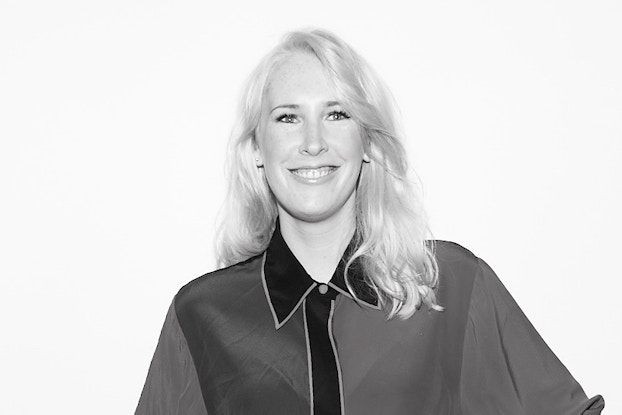
Why it matters:
- Trend forecasters highlight the growth of artificial intelligence for its power to both drive consumer convenience and unlock big market opportunities for businesses: McKinsey forecasts that AI has the potential to contribute $2.6 trillion to $4.4 trillion to the world economy.
- The way consumers, markets, and brands respond to sustainability is evolving. As a result, companies will find new ways to extend the life cycle of their products or services, for one, trend forecasters say.
- Businesses across categories need to start preparing to meet a new generation of digital native consumers. By 2025, Generation Alpha (ages 0 to 13 in 2024) will be the largest generation in history, and the first to be born in the 21st century. Their global economic footprint is projected to reach $5.46 trillion by 2029.
Trend forecasters identify the macro social, economic, and cultural shifts that will impact an ever-evolving consumer landscape, providing context to understand how and why consumers’ views and priorities change year over year.
This year, trend experts already seem to agree on at least one thing: The consumer is not merely a passive participant but an active influencer in shaping the market dynamics informing consumer demand, from sustainability imperatives to a digital landscape that’s ushering in the era of artificial intelligence.
With one month of 2024 under our belts, four leading trend forecasters tell CO— what businesses need to know to see around corners and align their consumer strategies accordingly.

Assessing the impact of AI: ‘It will empower human creatives and tastemakers, and give them the potential to hit new heights of creativity’
After a year with platforms like ChatGPT dominating headlines, the possibilities of artificial intelligence are unsurprisingly top of mind for many trend forecasters. While personal opinions differ on whether AI will be a net positive for the world at large, experts agree that its continued rise is inevitable in 2024.
Martin Raymond, Co-Founder and Editor-in-Chief at The Future Laboratory, a global foresight consultancy, has a rosy outlook for the coming year. “AI comes with a host of ethical issues and fears, but as a society we are starting to work through these,” he said. “In 2024, we’ll collectively improve our understanding of how the technology can empower a new golden age of human creativity.”
Raymond sees AI as a human collaborator. “AI will be a powerful tool that can challenge us to do better. It can serve as a catalyst and multiplier of ideas, and it can free and extend the capabilities of our minds,” he added. “But it will not replace humans, whose mastery of empathy, emotion, and judgement remains key to creativity. Instead, it will empower human creatives and tastemakers, and give them the potential to hit new heights of creativity.”

Cassandra Napoli, Senior Insight Strategist for trend forecasting powerhouse WGSN, is similarly bullish on the role of AI as a human assistant – not a human replacement. “AI tools are supporting consumers with the chores they don’t want to do,” she wrote in WGSN’s “Top Trends for 2024” report. “AI is also being employed for personal shopping and life coaching, and support for menial tasks is now emerging in the workplace,” she said.
Napoli cited examples such as Realtor.com’s AI Dream Home tool, which aims to help house hunters find their ideal home, and Booking.com’s trip planning platform, both of which leverage generative AI to help deliver better and more personalized results than the average search engine.
[Read: Meta, Google, and Shopify Execs on How New AI Tools Will Drive Sales in 2024]
Owen predicts people will shift to buying less but buying better, strategies that tap into quality over quantity.
The evolution of sustainability initiatives and messaging: Shifting the story to drive higher impact
The way consumers, markets, and brands think about sustainability is evolving to reflect a more positive approach to consumer demand.
“We propose a move to the term ‘regeneration’ rather than ‘sustainability,’ which inherently captures the positivity needed,” Martin Raymond of The Future Laboratory said.
According to Sarah Owen, Co-founder and Global Futures Advisor of SOON Future Studies, new approaches to sustainability will center on companies finding new ways to extend the life cycle of their products or services.
Owen predicts people will shift to buying less but buying better, strategies that tap into quality over quantity.
Trend forecaster and brand strategist Ashley Edwards called this a new “post-consumptive” mindset, where consumers are “scaling back their consumption in a big way, introducing ‘refuse’ and ‘repair’ into their eco-conscious lexicon beyond ‘reduce, reuse, recycle.’”

Rise of the Alphas: The next generation of soon-to-be teen consumers will be ‘top of mind for business’
Trend experts have spent years studying generational differences and developing strategists to reach millennial and Gen Z consumers; now, there’s already a new generation hot on their heels. This new cohort of digital natives – you may know them as “iPad kids” – are just beginning to reach their tween and teen years, but they’re already savvy consumers.
“I believe that Gen Alpha is going to be top of mind for business beginning in 2024,” Edwards told CO—. “For example, we are already seeing this in beauty in a big way, with new brands like BTWN, Allkinds, Rile, and Gryt hyper-targeting teen and tween consumers. These brands are purpose-built from the ground up to be for, and even by, teens. I think we'll see more brands prioritize learning with these consumers more intentionally to future-proof their strategies.”
“Gen Alphas have been exposed to an increasingly volatile world during their short lives, from climate change and exacerbating health concerns to a global pandemic unfolding in their formative years,” Owen added, highlighting the unique circumstances facing today’s kids. “Luckily, many Alphas can take agency over their mental and physical health as a direct result of their exposure to more self-aware parents, siblings and influencers…Gen Alphas will have more informed control over their health and wellness than any generation before them.”
[Read: How To Turn Deinfluencing Into a Marketing Opportunity]

Managing post-pandemic uncertainty: new expectations for engagement
Four years after the start of the pandemic, it’s becoming clearer just how much things have changed for most people.
This is particularly evident in the workplace, where many people are navigating new rhythms of life after a return to the physical office, hybrid and remote work arrangements, or in-person work for those employees whose jobs require it. WGSN’s report asserts the importance of intentionality and boundaries for younger generations of employees. “In a world of quiet quitting, ‘lazy girl jobs,’ the slow life movement … employers will need to embed worker happiness into their KPIs [key performance indicators],” wrote Allyson Rees, Senior Insight Strategist at WGSN.
In response, SOON Future Studies predicts a rise in slower, more intentional lifestyles both online and off. “While millennials and Gen Z know they can't actually give up work altogether, they are more intentional around finding ways to create balance and rituals that work for them,” she said.
Owen sees these boundaries extending beyond work and across everything we do online. “As our inbox and social media accounts continue to overflow, the art of curation — linked to [setting] better boundaries — is catching on,” she said. “This digital downsizing is a way to manage choice paralysis, information overload, algorithmic bias and, ultimately, empower people to spend more time off their screens.”
Ultimately, Owen continued, “digital downsizing will affect your brand. As people unfollow and unsubscribe [from digital content], companies will have to update their online value proposition, ensuring they deliver personalized engagement and compelling content that speaks to a new discerning audience.”
CO— aims to bring you inspiration from leading respected experts. However, before making any business decision, you should consult a professional who can advise you based on your individual situation.
CO—is committed to helping you start, run and grow your small business. Learn more about the benefits of small business membership in the U.S. Chamber of Commerce, here.









